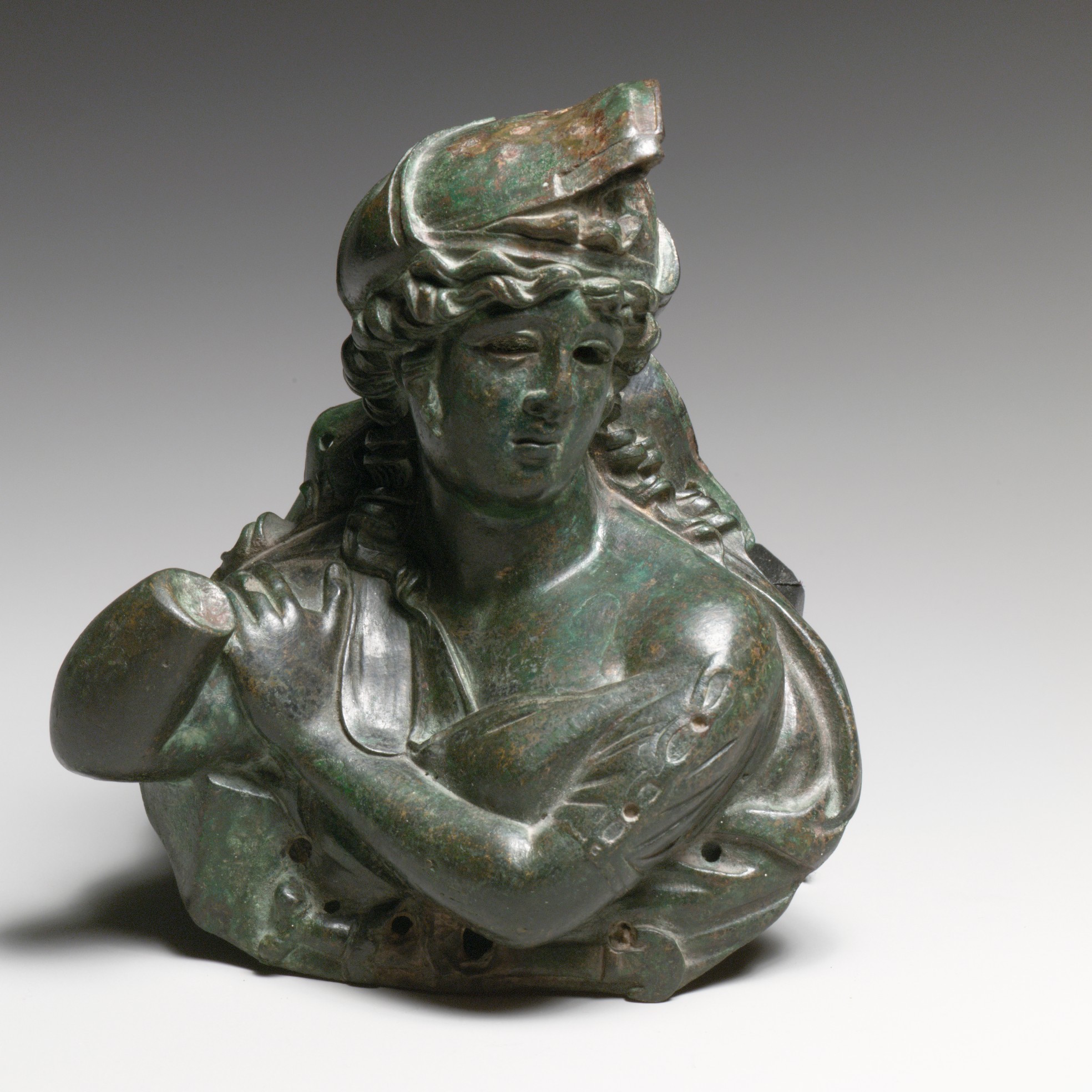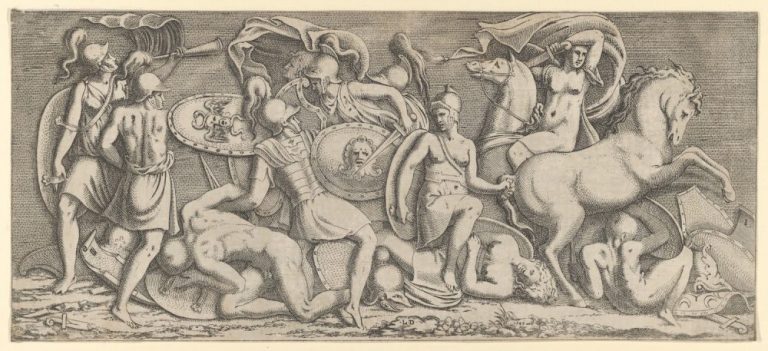Some historians, like Herodotus, considered the Amazons to be barbarians. Barbarians in the sense Greek of the term, that is to say foreign to the laws and rules of the Hellenic world. Barbarians, they were also so by their supposed ferocity and their murderous drive. Herodotus also used to qualify them the term Scythian " Oiorpata ”, Meaning“ killers of men ”.

They are even attributed the particularity of having blinded or crippled their male children to make them their servants. The Amazons were regarded as manly women.
On the one hand, they were women by their anatomical sex; on the other hand, they were somewhat male in their manners and their functions. This duality was found in their physical appearance because, unlike women, they had one less breast. Hence their name of " amazon Which means in Greek “without breast”. According to Strabo, they had indeed "all the right breasts burned from childhood in order to be able to use the right arm freely for any purpose, in the first place to throw the javelin". The Amazons were indeed believed to be warriors and conquerors.
Contents
ToggleThe Amazons wage war on men
The Amazons waged war against men, mounted on their horses, carrying javelins, bows and quivers. The versions differ concerning their way of life and their relationship to humans. According to Strabo, the Amazons spent most of the time with each other and only had sex with men once a year to procreate. Once pregnant, they repudiated them.
According to Diodorus Siculus, they married them to make them their domestic and sexual slaves: “while the men […] spent their lives in the houses, subject to the orders of their companions […] they continued to exercise the magistracies and to administer all public affairs ”.
The Amazon Omphale, by marrying Herakles, had she not forced him, the hero of the twelve labors, to give her the skin of the Nemean lion and his club, as well as to spin the wool at his feet? But according to the myth, they were defeated by two demi-gods, Heracles and Bellerophon. This character from the Amazon exerted a fascination long after Antiquity. During modern times, it is very often referred to in literary texts and historical treatises.
Several historians and explorers of the New World, notably Pierre Petit, Claude-Marie Guyon and Charles-Marie de La Condamine, have devoted in their treatises or their travel reports very beautiful pages to the ancient Amazons and their descendants - the modern Amazons - , encountered during explorations on the lands of Africa and America. These legendary women have also focused fantasies as repulsive as they are frightening by certain aspects of their femininity felt as threatening.
The myth of the Amazon
Between the Renaissance and the Enlightenment, the myth of the Amazon was often invoked in literature and poetry to negatively qualify Russian, French and English women who exercised, if not claimed to exercise intellectual, political and military functions, in other words considered functions. as naturally masculine.
Many sovereigns and rebels, scholars and letters are, in the texts of the time, compared to Amazons. This comparison is found for example in Elizabethan literature to qualify the Queen of England Elisabeth Tudor (1533-1603). Different texts compare it to Penthesilea and Radigund.
This metaphorical association is also found with regard to the Empress of Russia, Catherine II, and her lady-in-waiting, the eminent Princess Ekaterina Romanovna Dashkova (1743-1810), known mainly for her political role during the coup of State of June 28, 1762, and her intellectual role as director of the Academy of Sciences of Saint Petersburg and president of the Imperial Russian Academy. Catherine the Little (Ekaterina) and Catherine the Great (Catherine II) were surrounded by the same mythology. The literary imagery that was established resonates with it. Both are compared to two Amazons.
Amazons and subversive women
These comparisons are loaded with either positive or negative connotations. When they are negatively, as in the pen of Charles Philibert Masson in 1800, in his Secret Memories About Russia, it is to turn these two eminent women into subversive powers capable of overturning the hierarchical relations between the sexes and of undermining the foundations of patriarchal society in order to rob man of his power. This imagery is also found, from the reign of Louis XIV to the Directory, in fictions, poems and many texts engaged in the quarrel of women and most often hostile to female emancipation.
